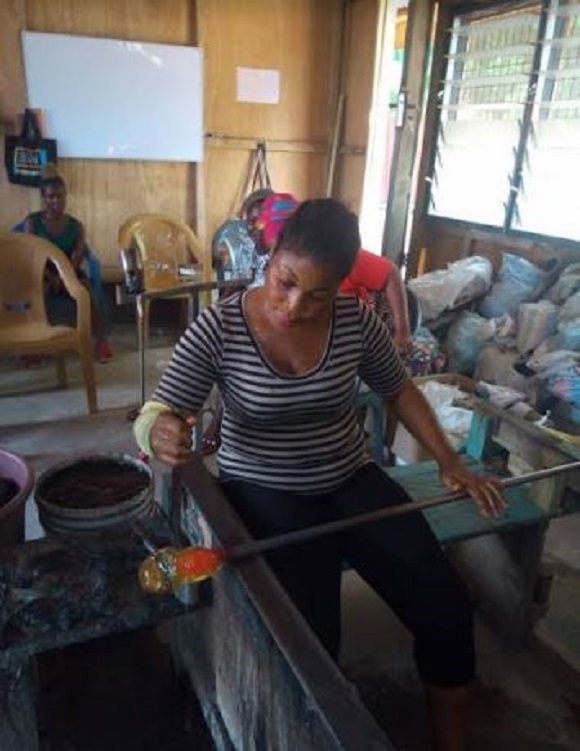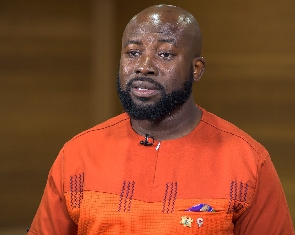In the face of growing youth unemployment, an initiative in Ghana aims to break down gender barriers and enable access to global markets through vocational and life skills
The latest global data on employment in some ways paint a hopeful picture. After a six-year low in 2016, economic growth improved in 2017, and the global unemployment rate fell for the first time in four years from 5.6% in 2016 to 5.5% in 2017. This nominal change however masks the reality that, due to rapid growth in the number of people who are of working age, the actual number of unemployed persons held steady, and is expected to grow by an estimated 1.3 million individuals by 2019 even as employment rates remain the same. The number of people considered to be in vulnerable employment is expected to increase as well, with current projections suggesting that the number of people in vulnerable employment may increase by up to 17 million per year in 2018-2019. These challenges are particularly acute in developing countries, where up to 40% of workers remain in extreme poverty.
Efforts to curb working poverty cannot keep pace with a rapidly growing labor force, and youth are shouldering much of this burden with an unemployment rate of 13%, or 3 times higher than the adult unemployment rate. It is estimated that at least 475 million new jobs will need to be created during the next decade to support the booming youth population. As young people come of age to enter the labor market, their economies in many cases are not ready to meet these huge demands.
Even if developing and emerging economies are able to keep pace and create more jobs to support youth, as it stands young people are too often failed by their education systems in gaining the skills needed to build and grow their livelihoods, and in turn companies struggle to grow without adequately qualified workers to bring on board. This global challenge significantly hinders the potential of economies to grow, and leaves youth at risk of becoming involved in unsafe or unhealthy endeavors. One of the major challenges for youth is how to transition from formal educational systems, which are often based on outdated, theory-based curriculums, into the job market. Lack of vocational skills is often cited as a major impediment to youth employment and productivity in developing countries and globally. Technical and Vocational Education and Training (TVET) is emerging as a key strategy for improving the livelihoods of youth and adults, and promoting economic growth for developing nations. TVET programs and strategic partnerships can play key roles in helping youth to create their own jobs and connect to markets at local, national and international levels. Such programs would have direct implications for addressing Sustainable Development Goals 4, 5 and 8.
To highlight one country case, in Ghana, graduates of secondary and even tertiary education often find it difficult to find jobs or become engaged in meaningful work without some level of vocational or entrepreneurial skill. For those who lack formal education up to at least senior secondary level, their outcomes are even more dismal, with many traveling south to work as head porters in unhealthy conditions and without adequate housing. Even as the government of Ghana has reformed their secondary curriculum to be more practice-oriented and works to strengthen their TVET system, recent studies show that most TVET programs in the country have weak governance systems and fail to consider market issues in their curriculum design and revision. Further, many programs appear to have strict categorization of fields dominated by males and females, with more lucrative skill areas viewed as the preserve of males.
The Connect To Learn (CTL) initiative is one program working to address these interwoven challenges of quality education, access to TVET, breaking down of gendered barriers, and lack of access to international markets. A partnership of the Center for Sustainable Development at Columbia University’s Earth Institute, Millennium Promise and Ericsson, Connect To Learn was launched in 2010 as an effort to improve access to quality education globally by enabling access to quality instructional and learning resources in marginalized communities by ensuring each child gets access to both primary and secondary schooling and is equipped with 21st century skills to help increase their professional opportunities and improve their quality of life.

The Connect To Learn program has worked in Ghana since 2011, supporting over 100 youth on secondary school scholarships in the Ashanti and Upper East Regions. While the program has helped to improve the lives of these youth through education, limited economic opportunities and a lack of practical skills have made it difficult for students to find jobs or pursue higher education upon graduation. Among girls who graduated from the program in 2015, 94% had not enrolled in a higher education institution or other education/training program five months post-graduation, while 71% remained without employment. Of those employed, 60% were only employed part-time. This situation points to the need for further opportunities to equip girls, including those in-school, out-of-school, and recently graduated, with technical and vocational skills to help them earn income.
Connect To Learn is therefore currently focusing its efforts on addressing this need for more technical and vocational training for youth by identifying skilled artisans in Ghana who are interested in providing training to youth, and who are in areas where Connect To Learn has relationships with strongly-rooted community organizations doing reputable work with youth. These programs are intended to be beneficial for all parties involved, with the youth benefiting from new skills and connections to artisans who are open to growing their businesses with their help or helping them to incubate their own businesses, and with the artisans benefiting from training apprentices who will have the option to continue working with them to expand their business capacity.
In a training program being implemented in partnership with community-based organization Youth and Women Empowerment in Ghana’s Eastern Region, Connect To Learn is supporting 8 young women and 2 young men to learn skills in traditional bead making and modern glass blowing techniques. The 10 participants represent a range of educational backgrounds, with 4 who have finished secondary school but struggle to make a living, and six others who only made it to primary or junior secondary level due to financial difficulties and other familial challenges. They are being trained under one of Ghana’s most esteemed bead makers - Mr. Michael Tetteh - who, after undertaking additional training in Europe in glass blowing, is producing products in Ghana that are new to the local market and which are truly one-of-kind. The emphasis on women in the program was made to help break down gender barriers in a traditionally male-dominated field. The skill area was selected due to the resulting products’ appeal in both local and international markets.
Since training launched in May 2018, the participants report great satisfaction in the program, and have high hopes to help grow the factory they are learning from or start their own. YOWE Program Coordinator Mr. Emmanuel Nuetey Siakwa reports that he is “highly impressed by the commitment of the trainees and the trainer.” As the training continues through August, the youth participants will receive entrepreneurship and life skills training from YOWE experts to help them understand the administrative, operational and marketing aspects of starting their own businesses. The Connect To Learn team meanwhile is working to identify opportunities to help support the startup of the participants’ businesses, including by identifying market opportunities to sell their products in the United States. Through these efforts, the trainees are currently starting work on fulfilling their first international order. One participant, Faustina Opata, says that she is a “hardworking girl” whose goal is to “achieve everything I am learning now in order to become a great person in future” and “move on well in life.” Trainer Michael Tetteh further explains that “this training is very important because all these ladies they are not working because jobs are not available after they finish school…Now they are excited for the job they are learning. Because these ladies will not walk on the street anymore, we expect this will attract other women to learn.”
The program in Ghana is one example of this strategic focus of Connect To Learn. The initiative is also currently supporting vocational and life skills training programs in Rwanda, Nigeria, Kenya, and India, and is working to improve the quality and practicality of formal education through initiatives to integrate technology and improve teacher pedagogical skills in Myanmar, Rwanda, Tanzania and Ghana.
To explore the glass art products being produced by the trainees in Ghana, visit distribution partner Ewiasi.
To keep updated on these initiatives of Connect To Learn, you can follow us on social media at the handles below!
Facebook: /connecttolearn
Twitter: @connecttolearn
Instagram: @connect.to.learn
General News of Monday, 16 July 2018
Source: Tara Stafford
FEATURE: Creating opportunities to build young people’s skills and combat global youth unemployment
Entertainment












